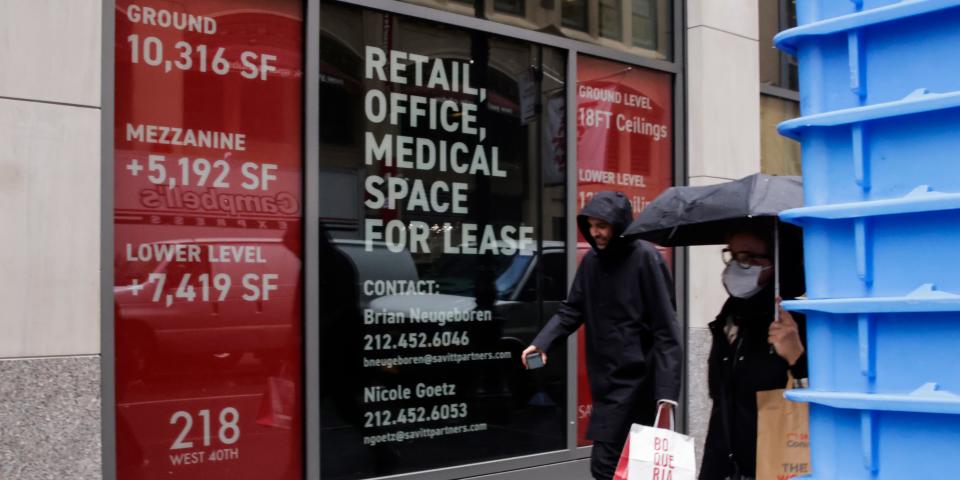Late payments on commercial mortgages are piling up as higher rates and weakening property prices bite into the sector

Late payments for commercial real estate mortgages rose last quarter as pressure builds for the US property market.
Commercial mortgage borrowers that were late on payments for at least 30 days or already defaulted rose to 3%.
More signs of stress could surface as high rates and weak property prices take a toll on the sector, the MBA said.
Late payments on commercial real estate mortgages are rising, a sign that higher mortgage rates and falling property prices are weighing on the US property market.
Commercial and multifamily property owners that were late on payment for 30 days or more or have already defaulted on their mortgages and had their properties seized by a lender rose to 3% in the first quarter of 2023, according to the Mortgage Bankers Association. That's up .1% from the previous quarter.
Delinquencies last quarter moved in the opposite direction compared to the same period in 2022, when late payments on commercial mortgages were declining.
"Ongoing stress caused by higher interest rates, uncertainty around property values, and questions about fundamentals in some property markets are beginning to show up in commercial mortgage delinquency rates," MBA's head of commercial real estate research Jamie Woodwell said in a statement.
"Delinquency rates increased for every major capital source during the first quarter, foreshadowing additional strains that are likely to work their way through the system."
Commentators have been sounding the alarm on distress in the commercial real estate market since the collapse of several regional banks earlier this year. The fall of Silicon Valley Bank, Signature Bank, and First Republic Bank sparked a tightening of credit conditions as banks become less willing to lend and higher rates make it harder to refinance some assets. Regional banks, in particular, finance around 60% of all commercial real estate debt, potentially spelling trouble for the industry as $1.5 trillion in loans approach their maturity date in the next few years.
Higher interest rates, meanwhile, have influenced the cost of borrowing for mortgages to move higher. The increased costs of borrowing have weighed on commercial property prices, with Morgan Stanley warning in April that prices could crash as much as 40% from their peak.
Read the original article on Business Insider

 Yahoo Sport
Yahoo Sport 





































